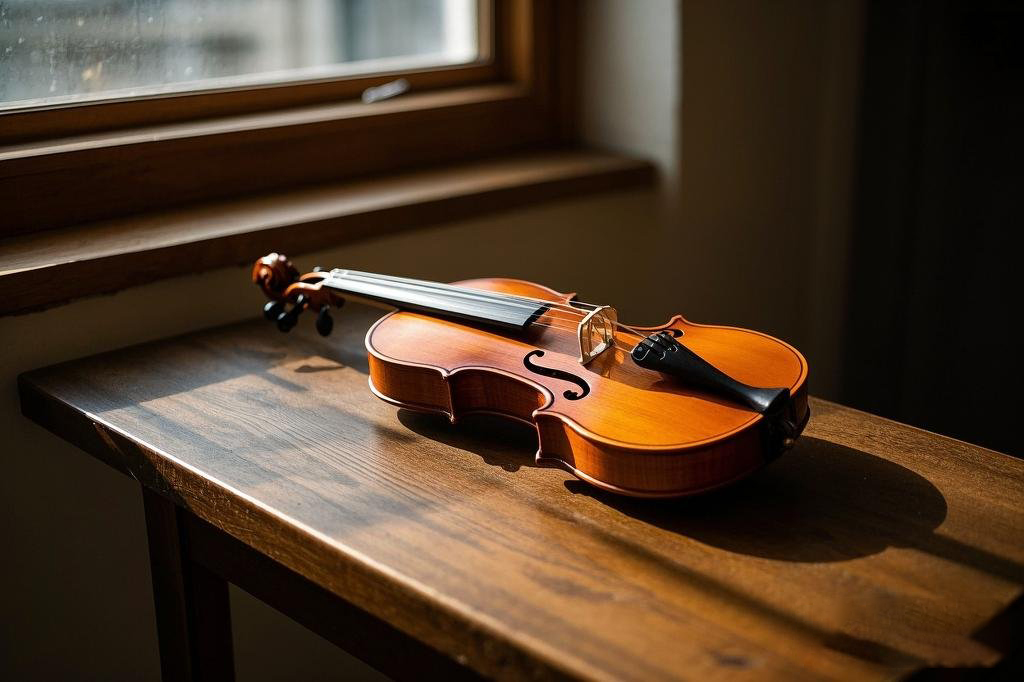Audition Secrets_ What Western Conservatories Look For
Shang Kun 2025-04-05 180
Audition Secrets: What Western Conservatories Look ForGetting into a prestigious Western conservatory can be a dream come true for any aspiring musician. However, the road to acceptance isn’t always straightforward. What exactly are these conservatories looking for during the audition process? Is there a magic formula that guarantees success, or is it more about the unknown factors that one must navigate? It's a question that many talented musicians, especially those from different cultural backgrounds, have pondered as they prepare for one of the most important performances of their careers.
The Pressure of Standing OutThe world of Western music conservatories can be intense and competitive, especially for those aiming for top-tier institutions like Juilliard or the Royal Academy of Music. Each year, thousands of hopefuls from all corners of the globe audition for a limited number of spots. The pressure is high, and the margin for error is slim. Even the slightest mistake or missed note can make or break an audition. But here’s the kicker: it’s not just about being technically perfect. In fact, many candidates who excel in technique still don’t make the cut. So, what’s missing?
What Conservatories Really WantNot all candidates who are highly skilled get into their dream schools. Why? Because conservatories are looking for more than just technical prowess. They want to see potential, uniqueness, and the ability to fit into their community. While the technical execution is essential, these institutions are also looking for creativity, individuality, and the personal expression that an artist can bring to the table. What sets you apart from the crowd? What is it that makes you unique, not just as a musician, but as an artist?
Another crucial factor that Western conservatories consider is stage presence. It’s one thing to play flawlessly in a practice room, but quite another to engage an audience with passion and authenticity. Audition panels are not only evaluating your playing—they want to feel something. The right combination of technical skill and emotional depth can elevate a performance, making it memorable long after the audition is over. That emotional connection can often be the deciding factor between two equally skilled musicians.

Preparation Is Key, But Be YourselfSo, how can you prepare for such an important audition? It’s not just about practicing for hours—though that’s certainly part of it. It's about refining your musical identity. What’s your story? Why do you play the way you do? Getting to the heart of why you are passionate about music can help you deliver a performance that resonates with the panel. It’s about connecting the dots between technique and emotion, creating a performance that feels genuine and full of intention.
But here’s something you might not hear every day: don’t be afraid to show vulnerability. Auditioning for a top conservatory can be nerve-wracking, but sometimes, it’s your willingness to take risks, to be a little imperfect, that makes you stand out. It’s easy to play it safe, to deliver a technically flawless performance. But to truly impress, you must embrace the process of growth and let your authentic self shine through.
Why Western Conservatories Are Looking Beyond Just SkillWhy does all this matter? Why are Western conservatories seeking more than just a perfect performance? The answer is simple: they’re looking for the future of music. These institutions are not merely training musicians; they’re cultivating artists who will shape the future of their craft. Whether it’s jazz, classical, or contemporary music, they want musicians who bring something new to the table, who push boundaries and break conventions. Being technically proficient is just the beginning of the journey. The real question is, what can you contribute to the art form itself?
Final ThoughtsAt the end of the day, the key to a successful audition is finding a balance between technical ability and emotional depth. Conservatories want to see your passion, your dedication, and your individuality. It’s not about being perfect—it’s about being real, staying true to yourself, and showing how you can grow and contribute to the artistic community. Take the time to prepare, but also give yourself the freedom to express your unique voice as an artist.
If you’re preparing for an audition, whether it's for a conservatory in the West or a local program, remember: the road to success is not only paved with skill but with authenticity and passion. So, embrace your journey, and let your love for music guide you every step of the way!
For those who are looking for personalized guidance on improving their musical skills, Chinese violin teacher Shang Kun offers one-on-one lessons both offline and online. Take your talent to the next level with professional mentoring!
